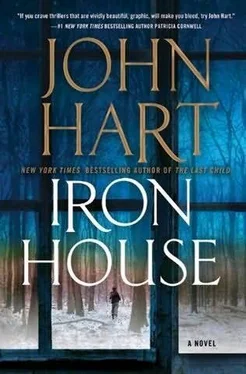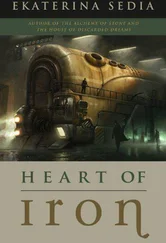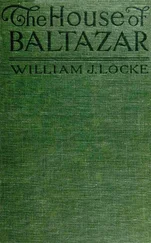John Hart - Iron House
Здесь есть возможность читать онлайн «John Hart - Iron House» весь текст электронной книги совершенно бесплатно (целиком полную версию без сокращений). В некоторых случаях можно слушать аудио, скачать через торрент в формате fb2 и присутствует краткое содержание. Жанр: Детектив, на английском языке. Описание произведения, (предисловие) а так же отзывы посетителей доступны на портале библиотеки ЛибКат.
- Название:Iron House
- Автор:
- Жанр:
- Год:неизвестен
- ISBN:нет данных
- Рейтинг книги:5 / 5. Голосов: 1
-
Избранное:Добавить в избранное
- Отзывы:
-
Ваша оценка:
- 100
- 1
- 2
- 3
- 4
- 5
Iron House: краткое содержание, описание и аннотация
Предлагаем к чтению аннотацию, описание, краткое содержание или предисловие (зависит от того, что написал сам автор книги «Iron House»). Если вы не нашли необходимую информацию о книге — напишите в комментариях, мы постараемся отыскать её.
A dark, atmospheric thriller with a plot that will keep you guessing until the last moment.
Iron House — читать онлайн бесплатно полную книгу (весь текст) целиком
Ниже представлен текст книги, разбитый по страницам. Система сохранения места последней прочитанной страницы, позволяет с удобством читать онлайн бесплатно книгу «Iron House», без необходимости каждый раз заново искать на чём Вы остановились. Поставьте закладку, и сможете в любой момент перейти на страницу, на которой закончили чтение.
Интервал:
Закладка:
“We’ll go right a few miles up, then straight for ten miles. After that, it gets complicated.”
“How?”
“Back roads and deep woods. No major roads go from here to Iron Mountain.”
“How long?”
“Forty miles, but it gets bendy. Maybe an hour and a half.”
“Okay.”
“Are we going to Iron Mountain, Michael? And if we are…” She struggled with the very concept. “Can you please tell me, why?”
He considered how much to say, and the order in which to say it. It was no small thing, this collision of past and present, so he spoke with caution. He told her of Ronnie’s girlfriend, and of Andrew Flint. He told her about the box of cash, and then about Billy Walker, Chase Johnson and George Nichols. “Hennessey, Ronnie Saints and those three. They’re the ones that ruined Julian’s life.”
“I remember Andrew Flint,” she said. “A nervous man to have such responsibility. He seemed in over his head but eager to do better things.”
“And the others? Walker? Johnson? Nichols?”
“I know who they are.”
Her voice was brittle, unforgiving, and Michael knew she’d heard stories of the things those boys had done. There was too much anger in her voice, too much bitter feeling. Julian had told. He’d painted pictures with his words, and with the ink of his eyes. He’d opened up and let her see the pain, because Julian, Michael knew, was the kind of boy who had to share. His strength was in the goodwill of others, in strong, knowing hands and souls that had not broken so young.
“What are you not telling me?” she asked.
Michael drove as Asheville fell away and the road twisted higher into the mountains.
“Michael?”
“Does the name Salina Slaughter mean anything to you?”
“Salina?” She hesitated, then said, “No.”
“Are you certain?”
“It’s familiar sounding, but like a name I heard on the radio. I can’t place it.”
The road bent right then left; lumber trucks hammered past in the opposite direction. He looked for reasons to doubt, for lies or twisted truth, but her posture was relaxed, her eyes clear and unflinching.
“Michael…”
“I’m thinking.”
The highway twisted, rose.
“About what?”
“Nothing,” he said, but that was false.
There were five names on the list.
Abigail Vane’s was number five.
“Powerful, isn’t it?” Abigail looked sideways. “Coming back.”
They were at the crest of the last high pass, the valley spread out below and Iron Mountain rising up on the opposite side, a great slab of stone touched with light so soft it did not seem real.
Michael nodded, wordless.
“That’s the town of Iron Mountain.” Abigail dragged herself taller, pushing her hips back in the seat and clearing her throat as Michael worked the car down the mountain. Last sun was on the valley floor, a long spill of gold that made the river shine. “It’s not as pretty as it looks.”
“Where’s the orphanage?”
“Through the town and four miles out the other side. The mountain hangs over it.”
“I remember the mountain,” Michael said, then drove them out onto the valley floor. They crossed small streams that would eventually feed the river, passed barbwire fences and bottomland pasture. Michael strained for a sense of connection, but only the mountain made sense. It piled up as they drew close: low, blanketed slopes and then the massive thrust of granite. The valley itself was three thousand feet above sea level; the mountain soared up another two, its face splintered, its crown brushed dark green.
“Are you all right?” Abigail asked.
“I’m fine.”
She touched his arm. “Past is past.”
“I may have heard something about that.”
“And yet we can all use reminding.”
She squeezed his arm, then let it go. They passed small houses on low lots, everything poor and dirty. “Not much here,” Michael observed.
“The town was built on mining and lumber, but the coal played out.” She tilted her head. “Most of that is national forest and can’t be logged. The private holdings were timbered out years ago. Sawmills folded when that happened. Trucking firms. A paper company. All gone.”
“How do you know all that?”
“I made it my business to know. I wanted you boys, and came prepared. Money. Knowledge.” She pointed. “Left here, I think.” Michael turned onto Main Street, and her voice dropped to a whisper. “None of this has changed. Twenty-three years and I still remember.”
And she did: package stores and open bars, bent people in red, cracked skin. They passed an open diner, a gas station. A few of the storefronts were boarded up. People watched them pass, and the watching made her uncomfortable. “Did you know that Iron House was an asylum before it was an orphanage?”
“What?”
She hugged herself. “For the criminally insane.”
Nine minutes later, Michael parked the big Mercedes in front of tall, iron gates. The columns were familiar, a memory of straight, hard fingers rising up through fallen snow. He’d touched one as he ran, knife in his hand, neck craning back.
The gates were new.
So was the chain-link fence.
Michael climbed from the car, Abigail following. The fence was eight feet high and ran off in both directions. Chain hung from the gates, a large, brass lock clanging as Michael shook the gates. Through the bars, Iron House humped up against the foothills, massive and dark.
“Frightful, isn’t it?”
He looked down on Abigail, then back at the gothic sprawl of the place he’d once called home. The building jutted up, its brick black with age, its stonework eternal and unchanged. Sunset put yellow stain on the high, slate roof, but below the soffits and the high third floor everything else looked gray and abandoned. The ruined wing stretched across the same ground, but its back was broken now, walls crumbled, small trees pushing through the rubble. The rest of the building didn’t look much better. Shattered windows gaped, shards of glass jammed like teeth in the rotted frames. Ivy climbed the broad, front steps, and weeds stood chest-high in the yard. The place radiated a sense of neglect and institutional decay. It looked forgotten and obscene.
“When did it close?”
Abigail shook her head. “I’m not exactly sure. Some years after I brought Julian home.”
He stared at the nightmare building, the smaller ones that hunkered down in its shadow. High grass bent in a hiss of wind. The river ran black as oil. “You say this was an asylum?”
“That’s why it was built so far from anything important. Why it was built so big and so strong.”
Michael struggled with the idea, but looking at the two high turrets and the broad sweep of stairs he remembered some of the things he’d discovered as a child, roaming the subbasement. Small, low rooms with iron rings bolted to the walls. Chairs with rotted leather straps. Strange machines rusted solid.
“It was built right after the Civil War,” Abigail said. “Many of the patients were soldiers suffering from posttraumatic stress. Of course, back then the affliction had no name. People wanted to do right by the soldiers, but they wanted to forget, too. The war was hard on this state. A lot of suffering. A lot of pain. The Iron Mountain Asylum was built to hold five hundred patients, but quickly overflowed to four times that many. Then, six. Damaged soldiers. The deranged. Some truly god-awful criminals feeding off the ravages of war. There’re books on this place if you care to read them. Stories. Pictures…” She shook her head. “Awful things.”
“How do you know all this?”
“I read up after Julian came home. I was trying to find some kind of insight. You know how it is when you’re grasping.”
Читать дальшеИнтервал:
Закладка:
Похожие книги на «Iron House»
Представляем Вашему вниманию похожие книги на «Iron House» списком для выбора. Мы отобрали схожую по названию и смыслу литературу в надежде предоставить читателям больше вариантов отыскать новые, интересные, ещё непрочитанные произведения.
Обсуждение, отзывы о книге «Iron House» и просто собственные мнения читателей. Оставьте ваши комментарии, напишите, что Вы думаете о произведении, его смысле или главных героях. Укажите что конкретно понравилось, а что нет, и почему Вы так считаете.












